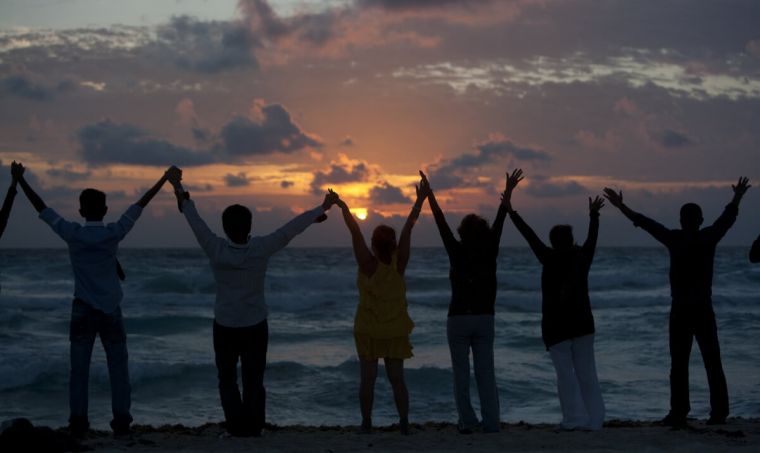Thou shalt not spread thyself too thinly

Building intentional community and meaningful relationships are phrases that are drilled into us as Christians. We're told that they are a vital part of bringing God's kingdom to earth, and integral to his plan to make all things new. Hit-and-run mission tactics can only take us so far; we draw people into the kingdom by 'doing life' with them, and – ultimately – loving them, day in and day out.
I wholeheartedly believe that, and I love that we get to partner with God in mirroring the community and relationship of the Trinity. It's what we're made for, and it's life-giving.
It's also absolutely exhausting.
'Being relational', in my experience, often gets conflated with trying to be the best friend we can possibly be to every person we know. And in our people-pleasing pursuit of that, we end up spreading ourselves far too thinly; over-promising and under-performing. I'm definitely guilty of this; of trying to fit so many people in to my life – housemates, friends from school, university, work and church – that I'm probably not being much of a friend to any of them.
I'm tired of someone asking when I'm free, only to look through my diary and pencil them in for three weeks' time. If we don't have time for the people around us, really what's the point?
The truth is, we can't be there for everyone all the time. We have a limited capacity. While it's important to be there for friends when they need us, and spend quality time with the people who give us life and encourage us in our faith as well as those who aren't Christians, we also have to make time for God, and for ourselves. Rest is a vital part of our faith; we see Jesus do it in the Bible, and it's played out in the story of Creation.
I think there has to be a better distinction between being radical in the way we approach community, and give ourselves away to one another, and learning where our limits are. We are called to empty ourselves in the pursuit of God, yes, and that does often look like spending quality time with people and being salt and light in our communities. But there comes a point where in trying to hold too many people at once, we stop giving them our best.
A colleague of mine was recently bemoaning his struggle to balance too many people to a friend. "What are you going to do about it?" was her reply. It shocked him; being busy is something that we usually complain about but don't actually consider changing, either because we secretly enjoy looking popular or because we simply can't bear the thought of 'dropping' anyone.
But maybe, actually, she was right – there is something we can do about it. Maybe by putting up boundaries, we protect ourselves and also those around us.
Perhaps instead of trying to squeeze half-hour coffees in between appointments and small group meetings, it's okay to admit that we need to pull back. That doesn't mean you have to go quiet on friends without notice, but be honest and upfront: you don't have a lot of time at the moment, but you'd love to spend some quality time with them further down the line.
In streamlining, we're less likely to become that flaky friend, and we're freed up to be more present in the moments that we do spend with people, rather than worrying about the next thing or person that we're rushing off to. It's okay to admit we can't do everything, and surely it's better to offer a few people our best?











